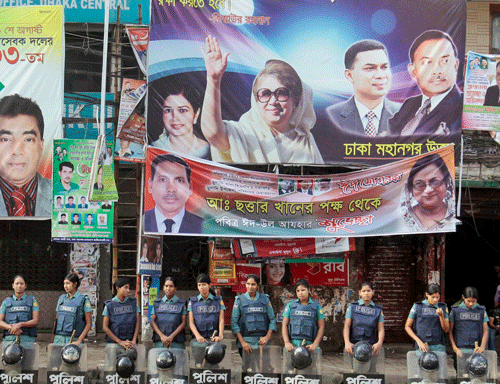
Violence by opposition protesters and excessive force by security forces need to end in Bangladesh, with national elections scheduled for Jan 5, Human Rights Watch said Thursday.
The opposition party alliance led by the Bangladesh National Party (BNP) has held large-scale and often violent protests throughout the country for weeks, and security forces have at times responded with excessive force.
On Wednesday, a member of the opposition Jubo Dal party was killed in a clash with security forces, with initial reports suggesting that at least 50 other people were seriously injured in the incident.
Credible reports suggest that at least 40 people, including bystanders, have been killed during protests, Human Rights Watch said.
The Bangladeshi human rights organization Odhikar estimates that more than 4,000 people were injured during protests in November alone, and that the security forces were responsible for at least five deaths.
"With election sentiments at the bursting point, Bangladeshi security forces need to overcome their long history of using unlawful force against opposition protesters and respond in a way that is professional and non-partisan." said Brad Adams at Human Rights Watch.
"The ruling Awami League should remember the mistreatment suffered by its supporters when they were in the opposition and ensure that law enforcement agencies act within the law."
Political party and protest leaders should act to prevent violence by their supporters, including against the security forces, Human Rights Watch said.
The security forces should respond to protests in accordance with international law enforcement standards, only using force when strictly necessary, it added.
The BNP has said it will boycott the elections unless a neutral caretaker government is appointed to oversee the voting process.
Prime Minister Sheikh Hasina and her Awami League have rejected calls for a caretaker government, promising instead an all-party government with itself at the helm during the pre-election period.